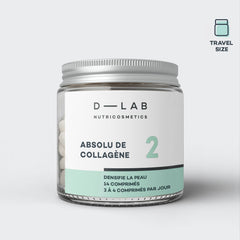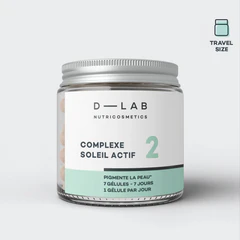
Baldness, an often feared natural phenomenon, affects millions of people worldwide, both men and women.
Linked to genetic, hormonal or lifestyle factors, hair loss can give rise to feelings of embarrassment, insecurity and even anxiety.
In this article, we'll look not only at the causes of hair loss, but also at natural treatments.
I. Understanding the causes of hair loss
Hair loss, also known as alopecia, and baldness, an advanced form of it, are the result of a combination of genetic, hormonal and environmental factors. The most common cause is androgenetic alopecia, which is mainly influenced by genetics and hormones.
Hair loss, particularly male pattern baldness or androgenetic alopecia, is more common in men due to several factors, mainly related to genetics and hormones.
In this case, the dihydrotestosterone (DHT), a hormone derived from testosterone, is responsible for the progressive shrinkage of hair follicles, reducing hair's lifespan and eventually causing it to fall out. Hormonal imbalancesdue to events such as the pregnancy the menopause or certain conditions such as polycystic ovary syndromecan also contribute to the loss of hair.
In addition, environmental factors such as chronic stress, physical trauma, unbalanced diet or specific drug treatments can trigger alopecia. In addition, certain autoimmune diseases, such as alopecia, cause hair loss by targeting the hair follicles. So, baldness and hair loss are not simply aesthetic phenomena, but the reflection of a complex interaction between our genetic heritage, our internal biochemistry and our environment.
II. Natural tips to slow hair loss
1. A balanced diet :
Eating foods rich in vitamins and minerals, especially those containing biotin (vitamin B7), iron, vitamin E and zinc, can promote healthy hair. Green leafy vegetables, nuts, seeds, fish and eggs are excellent sources of these nutrients.
By incorporating these foods and nutrients into your daily diet, you give your hair the essential elements it needs to stay strong and healthy, helping to slow hair loss.
It's also advisable to consult a nutritionist or dermatologist for personalized advice and to make sure you're meeting your body's specific needs.

2. Scalp massage
Regular scalp massage with castor oil, coconut oil or argan oil can stimulate blood circulation and strengthen hair roots.
Regular scalp massage can play a decisive role in preventing hair loss.
It stimulates blood circulation, ensuring an optimal supply of nutrients and oxygen to hair follicles, which can strengthen roots and promote hair growth.
Incorporating vegetable oils such as castor oil, coconut oil or argan oil, as well as essential oils such as rosemary or lavender oil, can enhance the effectiveness of the massage.
Rosemary oil is recognized for its stimulating properties, while lavender provides a soothing effect, reducing inflammation and irritation of the scalp.
For an even more beneficial effect, it may be a good idea to warm the oil slightly before massage. Not only does this promote better circulation, but it also allows nutrients to be better absorbed by the scalp.
In addition to its direct benefits on hair health, scalp massage offers a moment of relaxation, helping to reduce stress, itself often responsible for hair loss. Adopting this routine several times a week, or even daily, can transform the health of your hair while giving you a wellness break.
3. Use natural products
Using natural hair products can make a real difference in preventing hair loss.
Unlike traditional formulas, which often contain sulfates, parabens and other potentially harmful chemicals, natural products are gentle on the scalp and hair.
By choosing shampoos and conditioners based on natural ingredients, we eliminate the risk of scalp irritation or dryness, which can sometimes accelerate hair loss.
Ingredients such asaloe vera, jojoba oil and shea butter not only moisturize, they also strengthen the scalp's natural barrier, promoting healthy hair growth.
What's more, by avoiding the chemical residues left by conventional products, hair is more likely to stay strong, shiny and resilient.
In this approach, it's essential to read labels and choose products whose composition is as pure and simple as possible, giving preference to brands committed to an ethical and natural approach.
Avoid shampoos and hair products containing sulfates, parabens and other harsh chemicals. Opt for natural products that are gentle on the scalp and hair.
Read also: Hair loss, natural solutions
D-LAB food supplements
Modern lifestyles, poor nutrition and unstable hormones, such as those associated with menopause, can cause the hair bulb to slow down, resulting in hair loss, a sensitive scalp and damaged hair.
At D-LAB, our range of hair supplements in capsule or tablet form is designed for all hair types, enabling you to act on a specific problem and its causes.
The best-selling D-LAB hair mass program:
A program that targets hair loss linked to a neuro-hormonal disorder, a complex hair problem that must be treated from the inside by providing targeted active ingredients capable of restoring imbalances and densifying the hair mass.
It is composed of 22 active ingredients acting in synergy to act on hair loss and gain hair mass.
Thanks to an innovative, pure keratin, the program has an anti-hair loss action and stimulates hair fiber regrowth, both of which have been clinically proven.
This program regulates the neuro-hormonal balance and provides pure keratin to cement the hair in the bulb and prevent further hair loss.
It is also accompanied by Detox Microcirculation, which irrigates the entire scalp to reoxygenate it, but above all to promote the supply of active ingredients to the bulb to accelerate regrowth and maintain healthy hair.
This program targets a wide range of hormonal changes, such as pregnancy, stopping or changing contraception, menopause, periods of stress or emotional shock.
To conclude
Dealing with baldness and hair loss is a legitimate concern for many, but it shouldn't be approached with fatalism.
By understanding the underlying causes and implementing natural strategies, it is entirely possible to mitigate the progression of hair loss and, in some cases, promote healthy regrowth.






